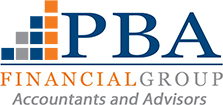ATO interest charges soar to highest level since GFC
The general and shortfall rates for late tax payments rise for the eighth quarter in a row.

.
The ATO has raised its general interest charge (GIC) rate and shortfall interest charge (SIC) rates for the eighth quarter in a row with both up by 0.25 per cent to levels unseen since the tail end of the GFC in 2012.
The GIC annual rate for the October to December quarter rises to 11.15 per cent while the SIC annual rate goes up to 7.15 per cent. The second quarter of 2012 was the last time that either rate was higher.
The ATO said GIC was applied to late payment of most taxes including income tax, FBT, GST and PAYG, as well as excessive shortfalls in incorrectly varied or estimated instalments.
The rate compounded daily and was calculated using the RBA’s 90-day Bank Accepted Bill rate plus 7 per cent. Taxpayers were notified when it applied and
“You can claim a tax deduction for GIC in the year that it's incurred,” the office said. “On the other hand, you're required to disclose remitted GIC in the year the remission occurs. This applies if you claimed a deduction (or can still claim a deduction) for the GIC incurred.”
Taxpayers could apply for remission of GIC in part or in full.
“We may remit the GIC if there are extenuating circumstances, such as:
- The delay in payment being not due to you (for example: natural disasters, industrial action, the unforeseen collapse of a major debtor or the sudden ill health of key personnel) and you took reasonable action to reduce the delay.
- The delay in payment being due to you but you took reasonable action to reduce the delay, while it is also fair and reasonable to remit.
- Payment of the full amount of GIC would result in serious financial hardship for you.”
The lower SIC rate was introduced in 2005 and applied to amended income tax assessments prior to the period of amendment. It was also calculated on a daily compounding basis using the 90-day Bank Accepted Bill rate plus 3 per cent.
“Generally, the SIC applies from the due date for payment of the earlier, understated assessment until the day before we issue the notice of amended assessment,” the ATO said. “The amended assessment or tax shortfall and the related SIC are due 24 days after the amended assessment is issued.”
Both rates were updated quarterly and generally announced two weeks before the start of that quarter.
Philip King
14 September 2023
accountantsdaily.com.au
